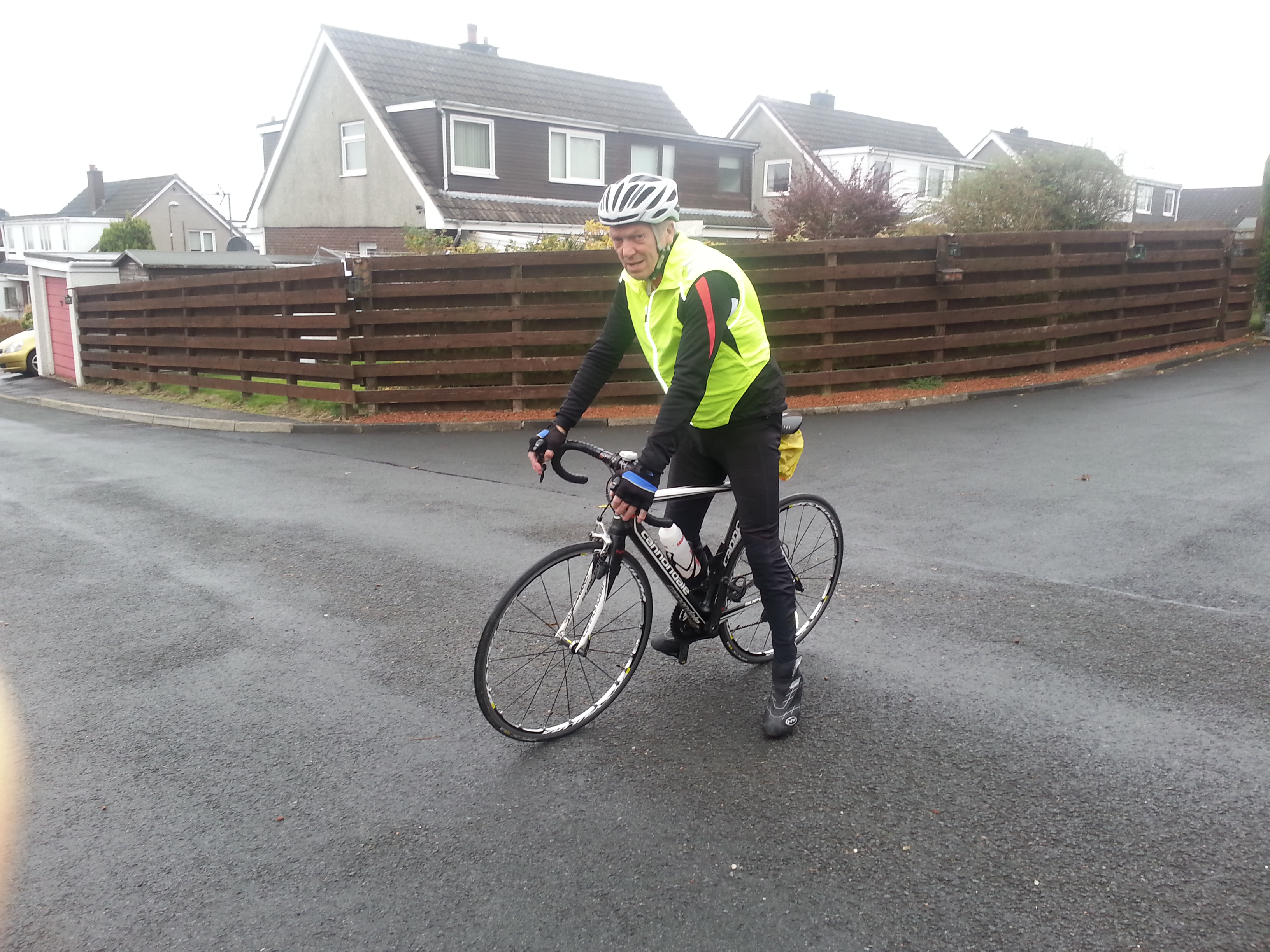10/09/2015
Injured cyclist, Alex Gibson, calls for a change in the Law

A complaint brought by 67 year old cyclist, Alexander Gibson, against Police Scotland for failing to investigate a road traffic collision that put him in hospital has been upheld by the Chief Inspector of South Highland Area Command.
The Police also admitted that it was wrong not to report the driver involved in the incident for any criminal offence under the Road Traffic Act contrary to Police Scotland Procedure and legal guidance.
Mr Gibson of Whitburn, West Lothian, made the complaint having first fought a successful 18 month compensation battle with the driver’s insurance company to establish that their client was responsible because he failed to give enough room when attempting to overtake.
Now Mr Gibson, disgusted by the excuses made by the Police for “not doing their job” and distressed by the legal battle through the civil courts, is calling for a change in the law.
A cyclist for 15 years, Mr Gibson was cycling in the North West of Scotland in April 2013 when he was suddenly struck from behind by a minibus. He sustained a fractured pelvis as well as damage to his elbow and shoulder and was taken to hospital before the police arrived at the scene.
According to statements taken by the Police from the driver and two passengers, Mr Gibson had apparently swerved into the minibus’s path. Because of this, no criminal charges were brought, despite Mr Gibson disagreeing with the driver’s version of events. No statement was taken from Mr Gibson, no formal road traffic investigations were carried out at the scene, and the driver was not reported for any office despite the serious nature of the accident and against all normal procedures, implying that from the beginning, the word of the minibus driver was taken over Mr Gibson’s version of events.
Colin Gough, Chief Inspector for South Highland Area Command called it “totally unacceptable” in his letter to Mr Gibson, upholding the complaint.
Mr Gibson said: “Because the Police immediately assumed the driver of the minibus was right and I was wrong, I have had to fight to prove that the accident was not my fault. Having done so, now the Police can only apologise that they did not do their job. This cannot be right. The law is in place to act as a deterrent and to protect people, but the opposite has happened. We need a change.”
Brenda Mitchell of Cycle Law Scotland acted for Mr Gibson in his battle against the insurance company in the civil courts, and believes that a system of presumed liability would have seen justice far quicker.
She said: “The Highway Code states that you should “give motorcyclists, cyclists and horse riders at least as much room as you would when overtaking a car”.
The damage to Mr Gibson’s bike and the fact that he was found on his own side of the carriageway, suggests that the driver in this case did not give Mr Gibson enough room when attempting to overtake. However, no due diligence was undertaken by the Police and the driver was never put under any scrutiny. And without any charges brought against the driver, Mr Gibson had an uphill battle to prove he was doing nothing wrong.”
She continued: “It took a period of nearly 18 months for the driver’s insurance company to admit liability. Under presumed liability, this 18 month long process would have been avoided. Currently, our civil law system requires the vulnerable road user - the injured and the bereaved - to prove the case against the more powerful, which in most cases is the motorist’s insurance company. No or little account is taken of the destructive disparity between a motor vehicle and a bicycle. Under presumed liability which recognises the concept of who brings most harm to a collision, it is for the more powerful to prove that the vulnerable road user is liable.
“The stress and worry suffered by Mr Gibson was entirely unnecessary, as was the cost incurred by the refusal to admit liability by the insurers. Presumed liability would have been beneficial for all parties concerned.”
Neil Findlay MSP for Lothians said: “The actions of the Police in this matter have fallen below the standards we have come to expect and it is disappointing that they failed to follow the correct procedures all the while treating Mr Gibson as the guilty party when in fact he was the innocent victim. Hopefully lessons will have been learned to ensure that other cyclists are not put in the same position.”
The Road
Share campaign has set up a steering group to take things
forward.
To find out more about the individual members of the Steering group and its overall remit.
The campaign has attracted Cross Party support at Holyrood. See who is supporting, who is undecided and who doesn't support the campaign.
The
Campaign has successfully attracted a number of celebrity
supporters who feel strongly about the introduction of presumed
liability and have given their support.
Contact us via email at info@roadshare.co.uk
Copyright 2014 © Road Share. All Rights Reserved.
Please Visit Us Again | Thankyou